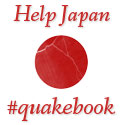Monday 5th February 2007
Back to the Nihon Medical School today for the full-on English lessons for the young doctors. It's a long trek to the other side of Tokyo for what turned out to be really hard and intensive work. All for payment by a train ticket! Still, it's all a good life experience.
Again, minor hysteria and many giggles amongst us "teachers"; not helped by me sitting next to a fabulous girl from the Czech Republic with a wicked sense of humour who had me in stitches all day. Unintended pun!
This is the very first time this exercise has been attempted so everyone, heads of sections, teachers and students, were going through a steep learning curve. The med students looked frankly terrified and we all had to rotate, change desks after each "interview" spending just 10 minutes with each student. This included running the session then reporting on their progress to the entire class of about a hundred people. Rather humiliating for the students, I felt.
Most of them had very little English, so this was quite a trial. I can see the reasoning behind it: more gaijin are in Japan than ever before, and therefore many turn up in hospital where without an interpreter, life would be very difficult for both patient and doctor.
We are performing as "simulated patients", pretending to present a specific range of symptoms for the doctors to identify, diagnose and suggest treatment. It was too tempting to go into dramatic overdrive and pretend to suffer suitably, rather than read from our script. One of the leaders kept saying "stimulated" instead of "simulated", which did nothing to quell our hysterical giggles.
After a few reports, the head doctor had to step in and tell us precisely how the Japanese had to be reported on. It's normal here to NOT praise out of hand. Negative criticism is expected; they don't quite understand outright commendation and it embarrasses them - allegedly. My students looked very pleased to be congratulated. It must have been extremely difficult for them to conduct an entire day in an alien language that they probably hadn't spoken since having a few lessons at school. Not to mention using English medical terminology.
However, as they are trying to encourage the learning of English and move into a more international environment they told us to insert the negative between two positives. And example: "You welcomed me very nicely and kept up good eye contact. However, I felt very distracted by your constant hand gestures. If you can control this, I believe you may make a good doctor".
In Britain, this is known as a "shit sandwich".
At one point, a very long discussion broke out with the entire class with the masters as to whether it was correct to mention a woman's weight during a medical appointment. The Americans felt this was a huge insult to the woman while the Europeans couldn't really see the problem. The Japanese looked horrified that it was even an issue!
At the end of the day, I was exhilarated with being part of something so different and hopefully effective to the future of Japanese medicine.
